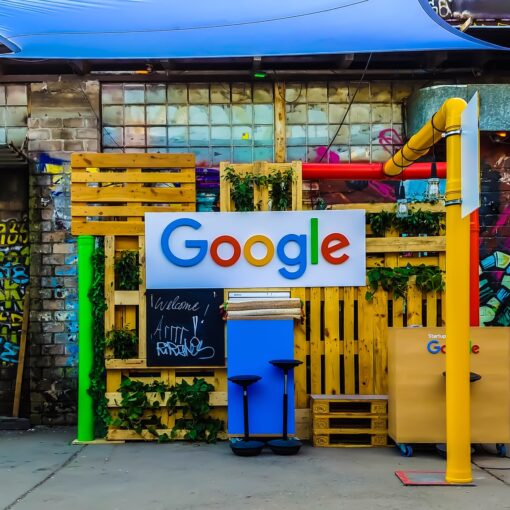 Ah, search engine optimization—the digital equivalent of polishing your shoes before a big date. Sure, you could just throw on a pair of sneakers and hope for the best, but wouldn’t it be more satisfying to strut into that virtual ballroom with confidence?
Ah, search engine optimization—the digital equivalent of polishing your shoes before a big date. Sure, you could just throw on a pair of sneakers and hope for the best, but wouldn’t it be more satisfying to strut into that virtual ballroom with confidence?
With Google acting like the world’s most finicky bouncer, it’s time to learn some SEO techniques that’ll not only get you past the velvet rope but also have those search engines begging for your attention.
When people search for products and services, they generally use a search engine, like Google. This has led to the rise of search engine optimization (SEO) as a viable marketing strategy.
SEO is the process of improving web pages by influencing their popularity in the search engines.
What is SEO? SEO is an acronym for Search Engine Optimization, which is the process of improving the website’s visibility in organic search engine results pages. With over 1 billion Google searches per day, it’s important to make sure your website gets good rankings on Google.
Here are a few tips to help your website rank better on the search engine list and get more traffic from people searching for information:
A search engine optimization technique is the process of affecting how your website appears in a search engine’s natural or unpaid results. There are many techniques that can be used to improve your on-page SEO and get good rankings on Google. In this article, we will discuss some helpful SEO tips for beginners.
Search engine optimization techniques are the process of affecting how your website appears in a search engine’s natural or unpaid results.
Contents of This Page
Generate High Quality Content And Get Better Search Engine Rankings
We all know that search engines like Google like to rank high quality content. In order to be rewarded with higher rankings, you need to create high quality content. But what does that mean? What makes something high quality, and how can you get there without being a professional writer or spending hours on the task?

The first thing to do when it comes to creating high quality content is making sure you are using your keywords correctly.
In today’s digital world, where the vast majority of people use their phones as their primary way to browse the internet, search engines greatly influence which companies have the most customers and the most positive opinions. That’s why many businesses are turning to online marketing firms to help them generate high quality content and get better search engine rankings.
In order to achieve a high quality website, you must generate content that can be found by search engines. Many websites are created with a thin layer of filler articles that show up on the first page for a short period of time before disappearing. Google and other search engines have caught onto this trend, and it is crucial to create the best possible content if you want your site to rank higher than others.
Optimize Keywords To Improve On-Page SEO
Keywords can make a big difference in your website’s on-page SEO, and getting the right keywords is only made more difficult by the variety of possibilities.

A recent study found that if you want to rank well in Google’s search engine for organic keywords, you must use keywords with less than 25% frequency. This leaves many of us wondering how to find these words and what other tricks are out there? The answer is simple: a keyword research tool!
As more and more people turn to the Internet to find what they need, online search engine optimization (SEO) has become increasingly important. Keywords are the cornerstone of optimizing a website for SEO, which is why it is essential for webmasters to optimize keywords on every page. Since Google’s algorithms rank sites with higher keyword density over those that do not, keywords should be used as often as possible.
Not only does optimizing your website’s content include using keywords, but it also means having meta tags. The main reason for using meta tags is to give search engines a clue of what your site is about and what content they may find. It also helps people find your site by letting them know if you have something new or even the last time you updated your website. It is best to use keywords that are not redundant in order to avoid unnecessary repetition.
High-Quality Visual Content Can Help With SEO
Visuals are integral pieces in a well-rounded content marketing campaign. They’ve been shown to boost engagement and increase the likelihood of conversion. In turn, they can also help with SEO. Bloggers and marketers alike have long used visual content to spice up their articles and drive more traffic – for the purposes of blogging or website optimization, it becomes crucial to provide high-quality visuals that can be shared and amplified on social media.

Some people question the use of high-quality visual content in an SEO campaign, but it turns out that this type of content can actually help with SEO. In fact, research from 2015 found that a company’s image and video mentions on Google Images accounted for more than half of that company’s organic search traffic.
Google’s search algorithm is continuously changing and evolving to meet the needs of its users. With this changing comes a shift in how content creators should go about creating quality content for their websites. One of the most recent shifts from Google is that quality visual content may be more important than ever when it comes to SEO.
Improve Website Architecture For Better On-Page SEO
Give your visitors what they want and expect. A strong on-page SEO strategy includes a well-structured, optimized website with logical navigation. This means that the site’s information architecture should be in line with how users will want to navigate through it. It also means keeping page structures clean and uniform; the site should mimic a search engine’s ability to follow links through multiple pages of the site.

Architecting a website for on-page SEO is not as simple as one might think. It requires a deep understanding of how search engines work and what the user experience should be like. For example, it is important to ensure that navigation menus are well-defined so that the user can get to content quickly and easily.
A good design will have a hierarchy of information presented in a clear chronological order. This includes: content blocks, headings, subheadings, and lists.
It has been documented that websites with poor architectural design have adverse effects on their SEO.
For example, the website may be hard to navigate, often missing important pages for the search engines to index, or it may have too many levels of navigation. The short term solution is to optimize your site for a dive operator and try to make it more accessible to visitors.
The company must also take into consideration the long term effects of a poor enterprise architecture when designing their website.
How Site Speed Can Effect Your SEO Efforts
Site speed is an important factor to consider when it comes to search engine optimization. A slow site can affect the number of pages a user views that you have indexed in SERPs, which lowers the page rank. It can also lead to a lower conversion rate on e-commerce sites and affect your rankings for mobile searches. The best way to ensure your site is fast and optimized for SEO purposes is by using caching, employing a CDN, and ensuring that images are compressed.

When a site takes too long to load, website visitors will become frustrated and leave the site. Nowadays, with so many people accessing the internet on smartphones, even a few seconds can cause frustration. When site speed decreases, there is less time for search engine spiders to crawl your site, which in turn leads to an overall drop in SEO efforts. There are several solutions to help make your site load more quickly, such as compressing files or optimizing images before uploading them.
Having a slow site can affect the SEO efforts of your site. It’s important to maintain a website that loads quickly and is compatible with mobile devices in order to retain visitors and potential customers. In this article, we will discuss how you can reduce page load time, find faster hosting services, and create a better navigation system in order to be successful at reducing the negative effects of traffic going elsewhere because of your website’s slowness.
The Title Tag Is Important For Good SEO
The title tag is one of the most important elements on your page, but many people don’t know why. The title tag can be a search engine’s first glimpse into what your content is about, and it can help them rank you higher in search results. On the other hand, if you write anything that is less than 100% accurate, your site might get penalized.

There are several key factors that will impact search engine optimization. The title tag is one of the essential aspects of your website because it is the first thing that a potential visitor will see. A poorly formatted title tag can actually cause your site to rank lower in search engines. It’s important for webmasters to make sure their title tags include keywords and are formatted properly, so they don’t lose visitors.
The title tag is the first thing that a visitor sees on a search engine results page. The title tag is important for good SEO (search engine optimization) because it’s what people used to determine if the webpage is relevant to their query. Proper titling will also give searchers valuable information about your webpage before they click on it in the search engine results.
Having Good Content Is Still The Most Important Aspect Of SEO
No matter how many times the search engine algorithm changes, having good content is still the most important aspect of SEO. Businesses that want to rank high in Google and other search engines for topical keywords will inevitably have to invest in creating quality content. The more content a site has, the better it is likely to rank on search engine pages. Larger sites typically attract more visitors, too – so it makes sense to pay close attention to keyword density as well.
If you are asking yourself what the most important aspect of SEO is, then you need to stop now. There are plenty of ways to rank at the top of Google and have a successful online presence. However, having good content is still the most important aspect of SEO. Without content, your business will not be found where it deserves to be found. You have to understand your audience and create content that fits their needs. This will keep them engaged and looking for more.
For companies who are looking to rank higher on search engines like Google, it is essential to have good content. From blogs posts to articles, it is important for a business to provide valuable information that people will want to read. Not only will this help your website rank higher on search engines, but it will also be beneficial in increasing your company’s credibility among potential customers.
So there you have it! By now, you’re armed with enough SEO strategies to make even Google blush. Remember, mastering on-page SEO is like training a cat; it takes patience, creativity, and perhaps a few treats along the way. Now go forth and conquer those rankings—after all, if your content doesn’t shine brighter than a disco ball at midnight, what’s the point?
Suggested Links:
Ultimate Guide to SEO
www.backlinko.com/seo-guide
SEO Basics: A Beginner’s Guide
moz.com/beginners-guide-to-seo
On-Page SEO Techniques You Should Know
ahrefs.com/blog/on-page-seo-techniques/

Kevin Collier is a seasoned writer and technology enthusiast with a passion for exploring the latest industry trends. With a background in digital marketing and content creation, he brings insightful perspectives to imhits.com on emerging technologies, innovations, and their impact on everyday life. When he’s not writing, Kevin enjoys experimenting with new gadgets and sharing his knowledge with fellow tech aficionados.





